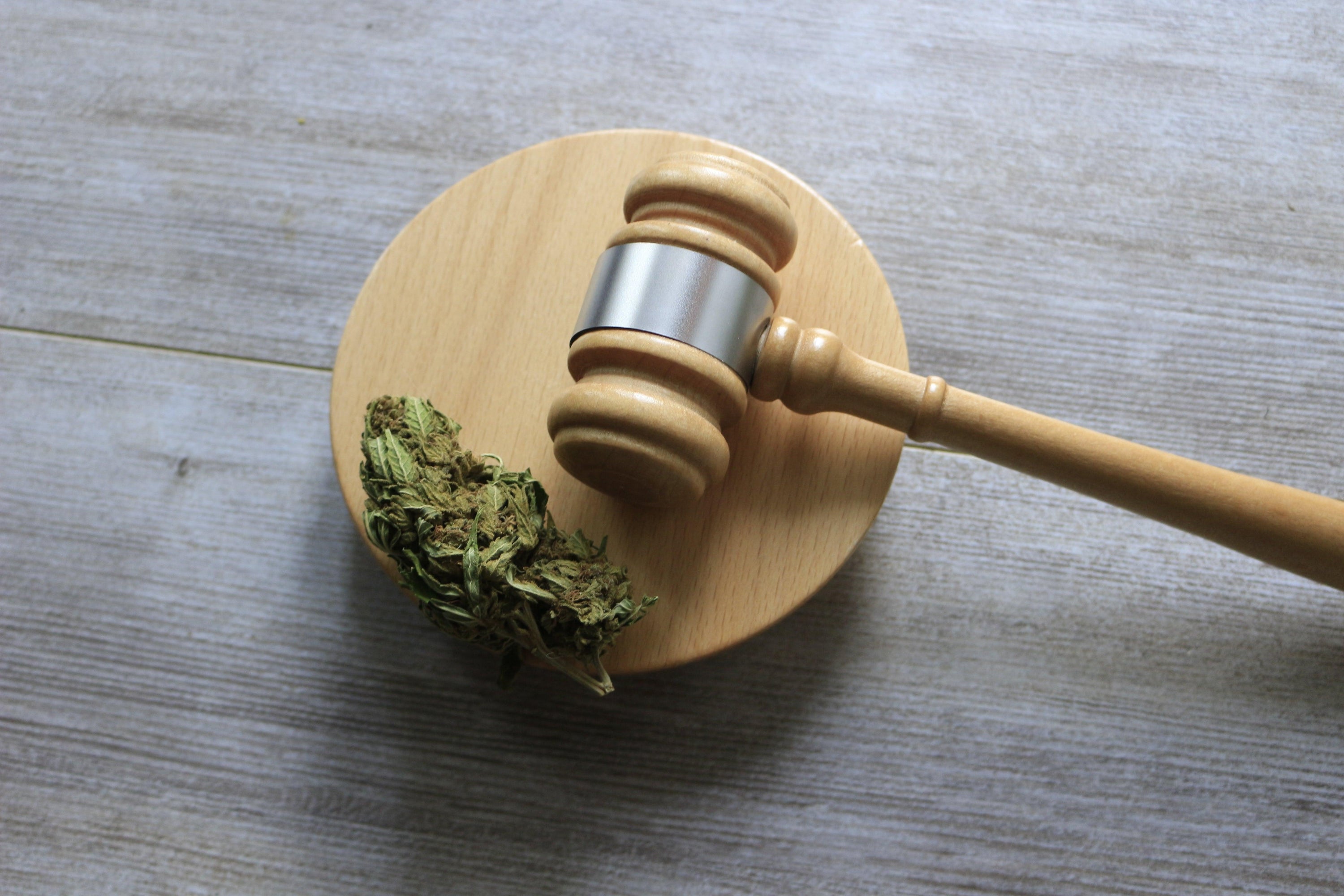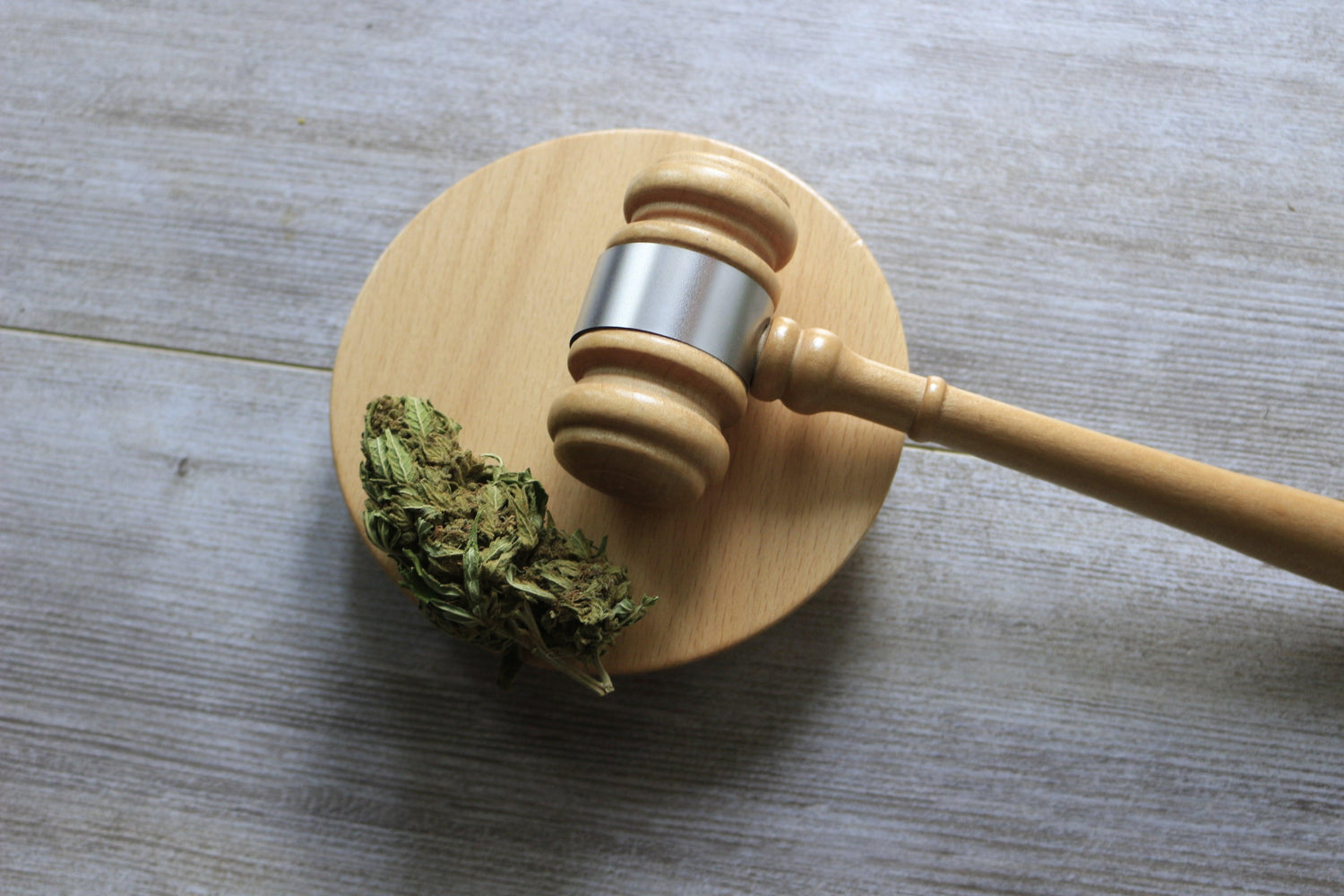In this article we will examine the arguments for and against the legalization of cannabis and take a closer look at the traffic light coalition's bill.
Summary:
-
What is opposed to the legalization of cannabis?
-
What are the arguments in favor of legalizing cannabis?
-
What will legalization be like in Germany?
-
How likely is legalization in 2023?
-
Conclusion
What is opposed to the legalization of cannabis?
While cannabis can in no way be compared to so-called hard drugs like heroin or cocaine, smoking weed is not without its risks.
Cannabis use can:
-
It's addictive. Researchers estimate that about 10% of people who use marijuana develop disordered use habits.
-
Increase the risk of heart attacks.
-
They lead to permanent damage until the brain is fully developed (which happens around age 25) and, among other things, impair memory and the ability to learn.
-
Promote the onset of mental illnesses and especially psychosis .
On the last point, however, there is no consensus among experts. A study by the Institute for Interdisciplinary Research on Addiction and Drugs (ISD) highlights that no increase in diagnosed psychosis has been observed so far in countries where cannabis is legal .
What are the arguments in favor of legalizing cannabis?
The current European drug report states that cannabis is the most popular illegal drug in Europe. People like weed and the legislation doesn't seem to have any effect on it.
What it could affect, however, is the quality of the weed that hits the market. Cannabis contaminated with synthetic cannabinoids represents a danger that should not be underestimated .
For consumers, it is only possible to distinguish between pure cannabis products and contaminated products to a very limited extent. The latter, however, have a much stronger effect and can lead to equally threatening side effects .
Legalization makes it possible to establish and enforce quality standards and thus protect the health of thousands of people .
The legalization of cannabis also allows for the introduction of a limit on THC. Over the last 20 years, THC content has steadily increased. On the one hand, researchers assume that this significantly increases the risk of addiction . On the other hand, too strong cannabis can have harmful consequences for health, as explained by a study published in August 2023 by the Yale School of Medicine.
Furthermore, legalization does not appear to bring about a fundamental change in consumer behavior. In Canada, for example, there has been neither an increase nor a decrease in consumption since cannabis was launched in 2019.
Finally, there is no evidence that cannabis use leads to a transition to harder drugs over time.
The release of cannabis could also ease the burden on the justice system . Suffice it to say that in Germany the police and judiciary deal with 180,000 drug crimes per year. Although not all of them are related to cannabis. But thanks to legalization, law enforcement would undoubtedly be able to use some of their resources more effectively.
Furthermore, the legalization of cannabis could deprive organized crime of some of its resources.
What will legalization be like in Germany?

When it comes to the marketing of cannabis, the traffic light coalition is inspired by the example of Spain and thus avoids the mistakes made during legalization in the Netherlands.
Consumption has been legalized there , but not purchase and cultivation . This has led to coffee shops having to rely on opaque networks to source their cannabis.
Ultimately this did organized crime a favor, which is becoming increasingly open and aggressive in the Netherlands.
Things should be different in Germany. According to the bill it will be allowed to grow weed yourself (maximum 3 plants) or buy it from so-called cannabis clubs .
These should have a cooperative structure . This means that members (maximum 500 per club) pay a fee that finances the cultivation of hemp plants and the safety of the greenhouses. The harvest is then distributed among the members. It is therefore a non-commercial activity .
However, it is permitted to consume a maximum of 50 grams of cannabis per person per month and no more than 25 grams per day. However, people between the ages of 18 and 21 will be able to receive a maximum of 30 grams of cannabis (with a maximum of 10% THC) per month. Cannabis consumption will remain illegal for minors .
Smoking weed will also be prohibited within 200 meters of schools, playgrounds and facilities for children and young people.
Given the protection of children and young people, the measures seem sensible. Scientists believe that tetrahydrocannabinol (THC) inhibits the development of brain function , as confirmed by a recent study by the American Addiction Center. It is therefore advisable not to start smoking weed too early.
The envisaged legalization model offers numerous advantages:
-
When cannabis clubs grow their own rather than importing, it is easier for them to ensure high-quality, toxin-free products.
-
Cannabis clubs will tend to be closed facilities and will not be able to advertise. So they are not intended to entice people to start smoking weed.
-
The development of cannabis tourism as in the Netherlands is prevented.
-
Because cannabis clubs are only allowed to sell home-grown marijuana, they have no particular incentive to tap into the black market, which can help dry it up.
Now it could be argued that this way it will not be possible to enjoy cannabis products such as Indian Charas or Moroccan Primero. This is not only unfortunate, but could also encourage the black market.
Quite possible. But how many people would choose expensive, illegal hashish when there is the possibility of getting high-quality weed at affordable prices? We dare to make a prediction: not very many.
However, at this point you need to ensure that enough legal weed is being grown to meet demand.
How likely is legalization in 2023?

The government has already approved the bill. It now still has to be approved by the Bundestag.
It is currently unclear when exactly the law will come into force. However, Federal Health Minister Karl Lauterbach is confident that this will happen by January 1 at the latest .
Conclusion
It seems obvious that the legal status of cannabis has minimal impact on consumer behavior. However, legalizing marijuana can make its use safer .
So, compared to criminalization, legalization could be a more effective (and certainly more delicate) way to protect citizens' health , which is the real point here. Relieving the burden on the judiciary and police could be a welcome side effect.
Germany has opted for a cautious approach that does not seem aimed at turning cannabis into an economic factor, but rather focuses on consumer protection. We at Terre di Cannabis hope to be able to see for ourselves by 2024 at the latest.





